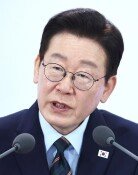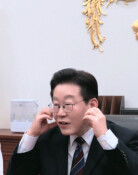A Five-way Security System Is Needed Among Korea, U.S., China, Japan, and Russia
A Five-way Security System Is Needed Among Korea, U.S., China, Japan, and Russia
Posted December. 07, 2004 23:00,
An international conference on the Korea-US alliance and the future of Northeast Asia was held on December 6 at Johns Hopkins University in Washington D.C. with participation of some 30 experts from Korea and the United States. The conference, which will last until December 7, was co-hosted by the Ilmin International Relations Institute of Korea University and The Paul H. Nitze School of Advanced International Studies (SAIS), a division of Johns Hopkins University, and supported by the Korea Foundation and The Institute 21 for Peace Studies, a Dong-a Ilbo-affiliated organization.
In the conference on December 6, experts argued for a new security system for Northeast Asia as well as a way to better manage the Korea-U.S. alliance in the future, two timely issues considering that the inauguration of the second George W. Bush administration is scheduled for January 20 of next year.
Professor Francis Fukuyama of Johns Hopkins University argued in his keynote speech that the existing Korea-U.S. alliance led by the U.S. is increasingly insufficient given the widespread anti-Americanism in Northeast Asia. He also added that a five-say security system excluding North Korea among members of the six-party talks is needed.
Professor Michael Mandelbaum of Johns Hopkins University pointed out that whereas the U.S. is facing a real threat of North Koreas nuclear weapons could end up in the terrorists hands, Korea does not understand that, adding that the gap is the challenge that the Korea-U.S. alliance is facing.
Professor Don Oberdorfer of the same university expressed his concerns over President Rohs remark that Korea would go its way while playing a leading role in the six-party talks, saying that it is fair to say that the bilateral alliance would break up if the Bush administration takes a tough stance toward North Korea.
Professor Katherine Moon of Wellesley College, however, said that anti-American sentiment among Koreans, which peaked in the 2002 Korean presidential election, subsided afterwards and that the U.S. should try to understand the rapidly changing democracy in Korea to broaden the scope of bilateral understanding.
Senior Research Scholar Kathryn Weathersby of The Woodrow Wilson International Center for Scholars argued that North Korea would give up nuclear weapons if the U.S. offers non-aggression assurances and economic assistance, while Senior Fellow Markus Noland of the Institute for International Economics (IIE) responded that he did not agree on the idea that economic assistance from the outside world could revitalize the North Korean economy.
Soon-Taek Kwon Seung-Ryun Kim maypole@donga.com srkim@donga.com



![[단독]폴란드, 韓 해군 최초 잠수함 ‘장보고함’ 무상 양도 안받기로](https://dimg.donga.com/c/138/175/90/1/wps/NEWS/IMAGE/2026/02/27/133437397.1.jpg)
![‘노인 냄새’ 씻으면 없어질까?…“목욕보다 식단이 더 중요”[노화설계]](https://dimg.donga.com/c/138/175/90/1/wps/NEWS/IMAGE/2026/02/27/133434557.3.jpg)


